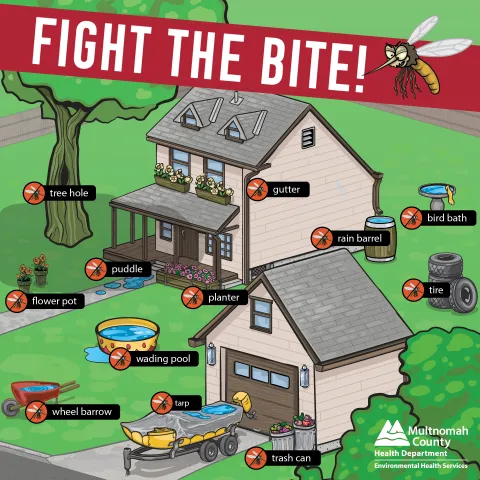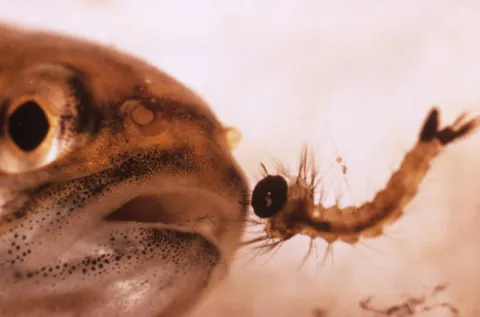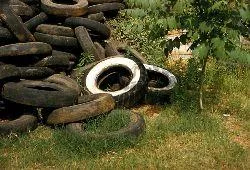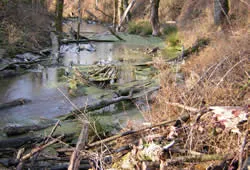
Some species of mosquitoes are able to transmit diseases to humans. Female mosquitoes feed on the blood of humans and other animals.
If a mosquito is infected with a disease like West Nile virus, it's possible they could spread it to the animals they feed on.
Reduce Mosquitoes
Mosquitoes reproduce by laying eggs on standing water, and they can develop in any standing water that lasts more than 4 days. Even a small bucket can become home to up to 1,000 mosquitoes!
To reduce mosquitoes around your home, get rid of places where mosquitoes breed:
- Empty water from buckets, tarps and other objects around the yard
- Change water in wading pools every other day
- Maintain swimming pools with proper chlorination and equipment
- Clear debris from rain gutters
- Thin vegetation in and around ornamental ponds
- Consider adding a water feature to your pond—immature mosquitoes cannot breathe in moving water.
- Use rain barrels designed to keep mosquitoes out
Share these mosquito prevention tips with your neighbors! Prevent mosquitoes at home»
Prevent Mosquito Bites
- Install or repair window and door screens
- Stay indoors from dusk to dawn
- Cover your skin (wear long sleeves and pants) when outside
- Avoid perfumes and colognes when going outdoors for long periods of time
- Use mosquito repellent that contains DEET
- If you hunt, wear gloves when handling and cleaning animals to avoid exposure bare hands to blood. Cook game meat thoroughly.

Get Mosquitofish
If you have an ornamental pond, or a pool that's not in use, mosquitofish may help to control mosquitoes.
Mosquitofish, also known as Gambusia, are small predatory fish that eat mosquito larvae. Read the Oregon Department of Fish and Wildlife’s guidance on mosquitofish
Multnomah County residents can get free mosquitofish from May 15-August 30. Call 503-988-3464 or email vector.nuisance@multco.us to schedule a pick up time from our North Portland office.
Habitat
Container-breeding mosquitoes

Found in natural and human made containers like tree holes and old tires. Culex Pipiens and Ochlerotatus Japonicus are 2 container-breeding mosquitoes in Multnomah County.
Floodwater mosquitoes

Lay eggs on the ground near bodies of water that flood (Government Island, Oaks Bottom Wildlife Refuge and Smith and Bybee Lakes), usually in spring. When the water rises, the eggs float on the surface and hatch into larvae.
Aedes Vexans and Ochlerotatus sticticus are 2 floodwater species found in Multnomah County.
Summer mosquitoes
Lay eggs on standing water in natural or built environments. Includes Culex, Culiseta and Anophoeles species.
Need Help Talking to Your Neighbor?
If you feel there's mosquito problem coming from your neighbor's property, you may want to consider talking to your neighbor or property owner.
